7 Tips for an Ideal Vacation in Jerusalem
Seven is often considered to be a lucky number, especially in Western culture. But it’s incredibly auspicious in Jewish tradition too. Why? Well, seven represents God’s creation of the world (six days for the physical, then the seventh day of rest - for Jews, Shabbat). The Jewish holiday of freedom - Passover - has seven days. Under the Jewish wedding canopy, where the bride and groom stand, a rabbi will recite seven blessings. In the Bible, there are mentions of the seven species, with which the land of Israel is blessed. Even Israel’s national symbol, the menorah (candelabrum) has seven branches! So when planning your ideal vacation in Jerusalem, we thought we’d carry on the tradition and give you seven tips to make it everything you hoped it would be…
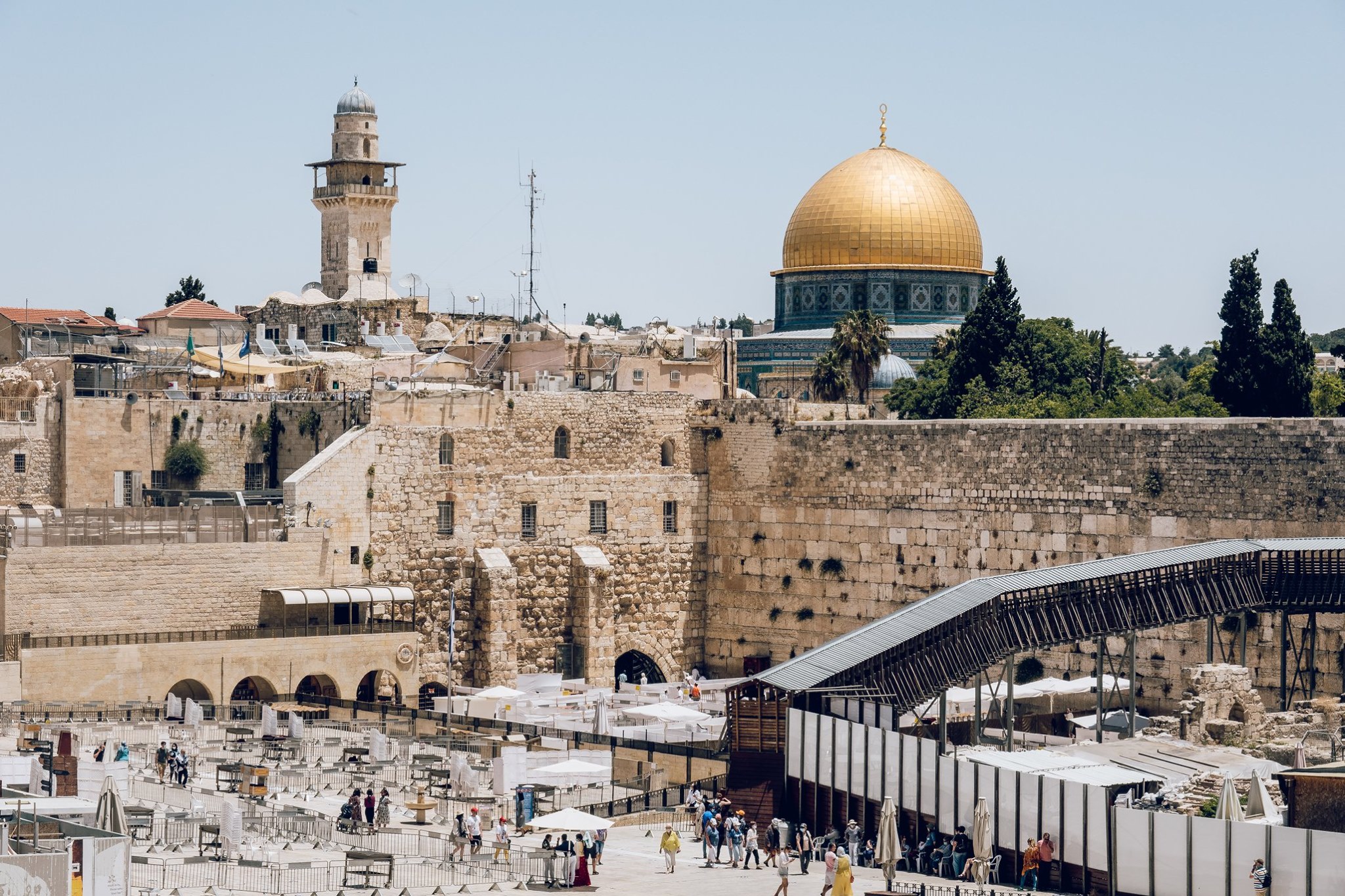
The Western Wall. Photo credit: © Dmitry Mishin
1. How Many Days Should I Stay? What Season is Best?
How long should you spend in Jerusalem? Well, how long is a piece of string? No, seriously, Jerusalem is so extraordinary, so magical and so spectacular that some might argue you could spend a lifetime there (or at least your entire vacation). But let’s work on the basis that you’re not coming to stay forever - meaning that you will need to plan your itinerary according to how long you have for your entire trip to Israel (factoring in places such as the Galilee, the Negev desert, the Golan Heights and - of course - the non-stop city of Tel Aviv).
We think that at the very least you will need 2 full days to explore the main attractions (the endless sites in the Old City, the Israel Museum, Yad Vashem, and Mahane Yehuda Market) but you’d be on your feet all day and barely scrape the surface of the city. If you have more time, allow 3-5 days which will let you move at a more leisurely pace and see Bethlehem, or even take a day trip to the Dead Sea and Masada.
In terms of when to travel, the most popular months to visit Jerusalem are April to October (unless you can’t bear the heat, in which case skip July and August). The spring and fall are always lovely in Jerusalem, whilst winter days are more chilly and rainy (once in a while, the city even gets snow), although attractions will definitely be less crowded in the colder months. Do remember to check when the major Jewish and Christian Holidays fall - Passover, Easter, Sukkot (a Jewish harvest festival) and Christmas are always very busy and flights, accommodations, and attractions all book up way in advance.
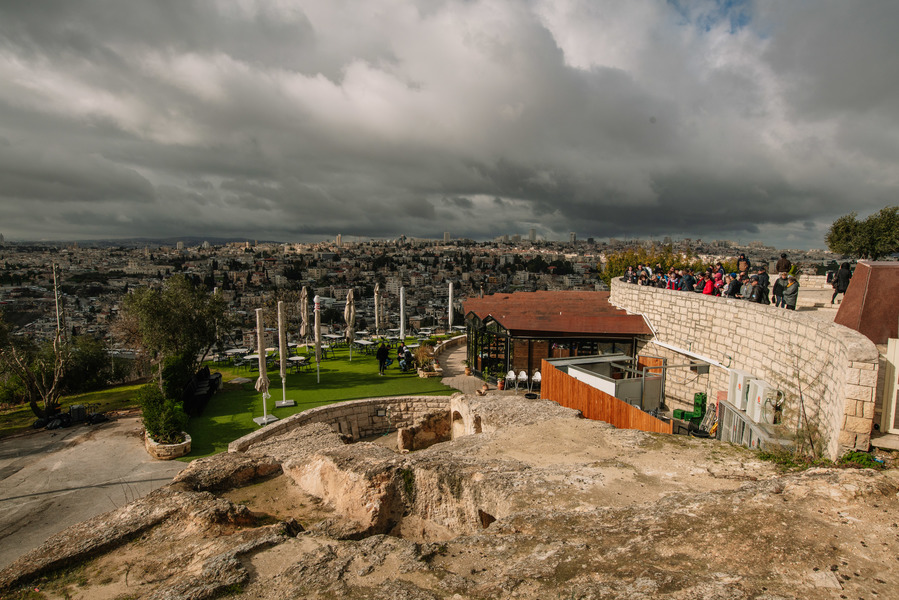
Jerusalem in winter. View from Mt Scopus. Photo credit: © Dmitry Mishin
2. What Kind of Trip Should I Take?
Choosing how to travel very much depends both on your budget or personality. Guided Jerusalem day tours are ideal for anyone who doesn’t want complications and hassle on their holiday or doesn’t want to travel alone. Whether you’re interested in history, religion, or archaeology, there’s a Jerusalem tour package that will suit your needs, and guides in Israel are incredibly well-versed in everything that makes the country so fascinating.
However, it’s also easy and safe to travel independently and, if and when you feel the urge for company, you can always take an organized Jerusalem day tour. Since you will land at Ben Gurion airport (which is about 40 minutes drive from Tel Aviv) you will need to travel to Jerusalem under your own steam - either by train or with an airport transfer. Once in the city, there are all kinds of day tours on offer - for art lovers at museums, foodies at Mahane Yehuda Market, and history buffs within the ancient walls of the Old City.
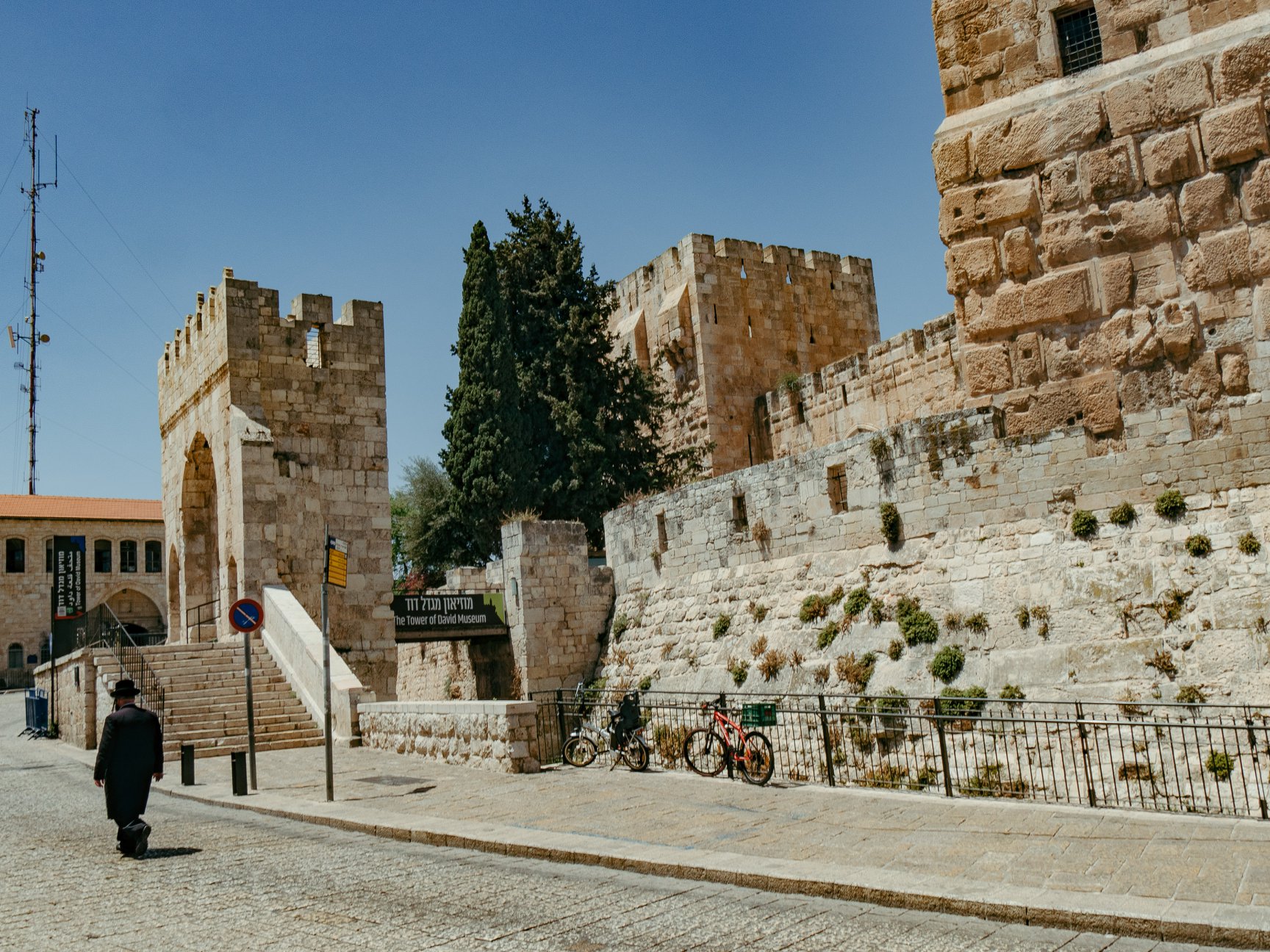
Tower of David, Jerusalem. Photo credit: © Dmitry Mishin
For a large number of tourists, no visa is required and you will automatically be granted a 90-day stay, at Ben Gurion Airport. If you are not one of the lucky ones covered under this Exemption Agreement, then you will need to apply for a visa. More information about this can be found on this dedicated Foreign Ministry page.
Renting a car is easy and not particularly costly - all you need is a valid driver’s license and your passport and you’re good to go. For more information about driving in Israel as a tourist, click here. Just remember, once you’re off, that you’re in the Levant, and the driving might be a bit more ‘chaotic’ than what you’re used to, in Europe or America!
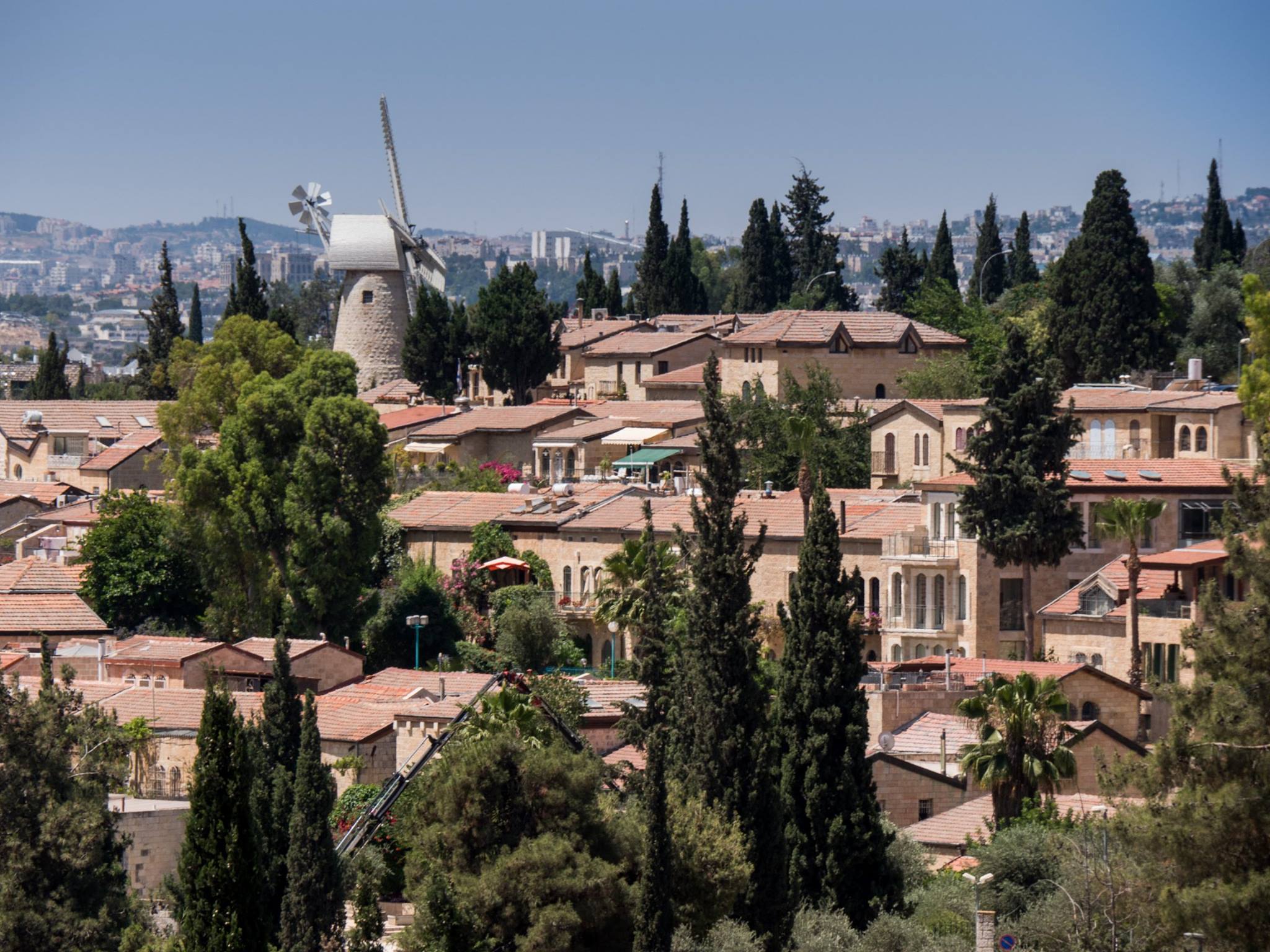
Moses Montefiore Windmill, Jerusalem. Photo credit: © Dmitry Mishin
4. What Kind of Accommodation Should I Book?
Jerusalem is awash with accommodation, ranging from the cheap and cheerful to the utterly decadent. It goes without saying that much of this decision is about the budget (and yes, we’re sorry, but staying in Jerusalem is expensive, whichever way you cut it). However, there are plenty of humble lodgings and modest places for rent, which are both clean and comfortable.
If you’re looking for privacy but still want some comfort, try the Agron Hostel, located between downtown Jerusalem and leafy Rehavia. There’s also the Austrian Hospice (run by priests and nuns) located on the Via Dolorosa in the Old City, which affords marvelous views from its terrace. (Our tip: try their apple strudel - it’s homemade and delicious!).
And if you want to splash the cash, well - don’t worry! Classy Jerusalem hotels like the Mamilla, King David and Wardolf Astoria won’t leave you disappointed. With their amazing views, fine dining and stunning architecture, we guarantee you won’t regret the experience. And, after all, you’re on vacation, so why not treat yourself to a touch of luxury?
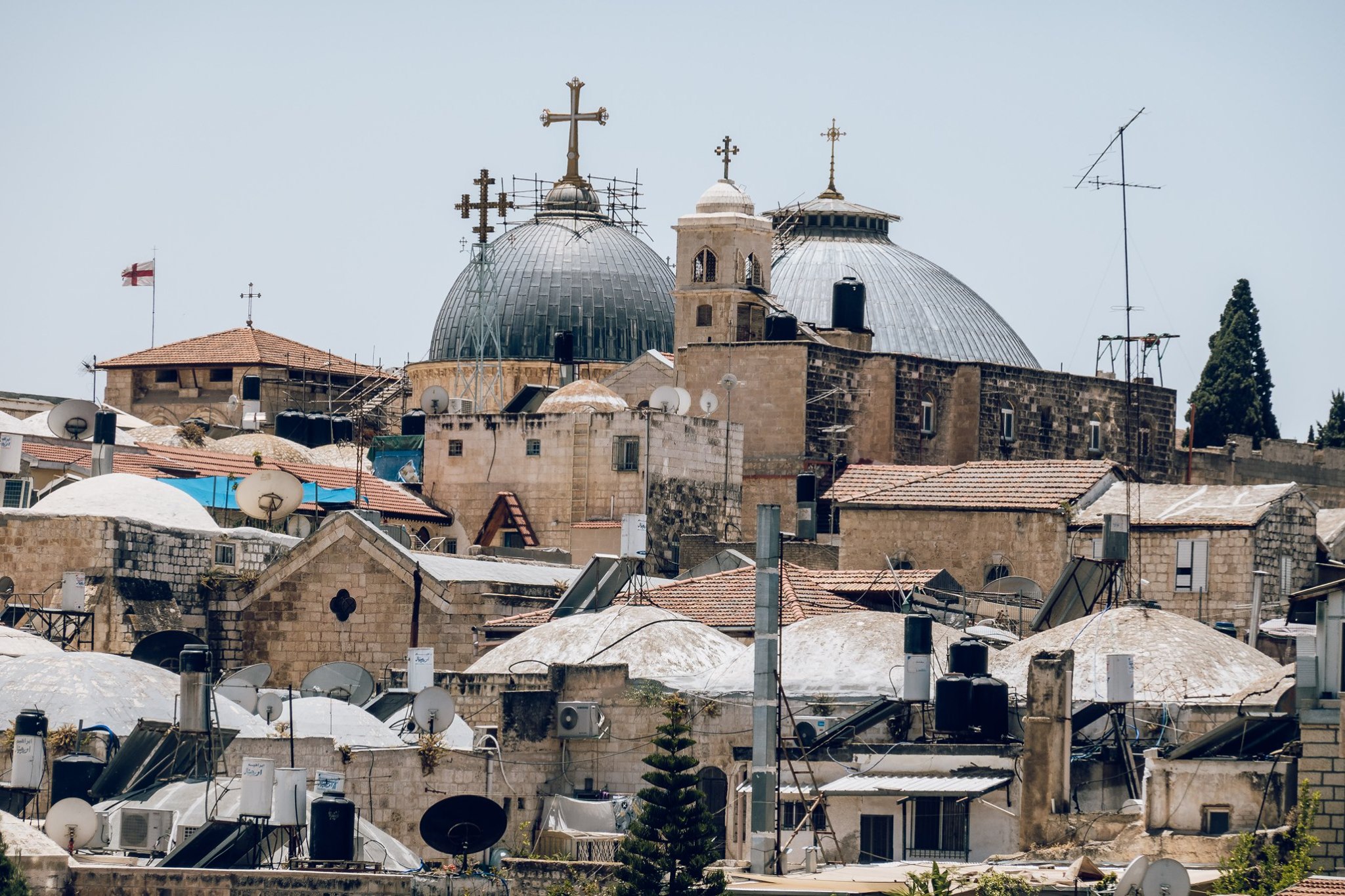
View of Jerusalem from the roof of the Austrian Hospice. Photo credit: © Dmitry Mishin
5. What Should I See? How Do I Fit in as Much as Possible?
Jerusalem is a city with an enormous amount to see - both inside the walls of the Old City and outside. Whether you’ve two days or twenty, you don't want to miss the ‘classic’ sites i.e. the Western (Wailing) Wall, the Dome of the Rock, the Church of the Holy Sepulchre, not to mention the surrounding Mount of Olives, Garden of Gethsemane and perhaps a tour of the city’s underground tunnels! Luckily for you, we’ve already done the research and compiled a list of the city’s top attractions, entitled “Jerusalem: Top Activities and Tours”.
And whilst we’re on the subject, the museums and art galleries of the city are a great treat for visitors, as is a stroll in some of the city’s most beautiful neighborhoods (tranquil Ein Kerem, bustling, lively Nachlaot, and the trendy German Colony). Another way of approaching it is to combine Jerusalem with some other sites. Why not try a Jerusalem, Masada, and Dead Sea tour - an unforgettable three-day experience. Or, for pilgrims, head up to the North and the West Bank for a break, with a Christian Jerusalem, Nazareth, and Bethlehem tour?
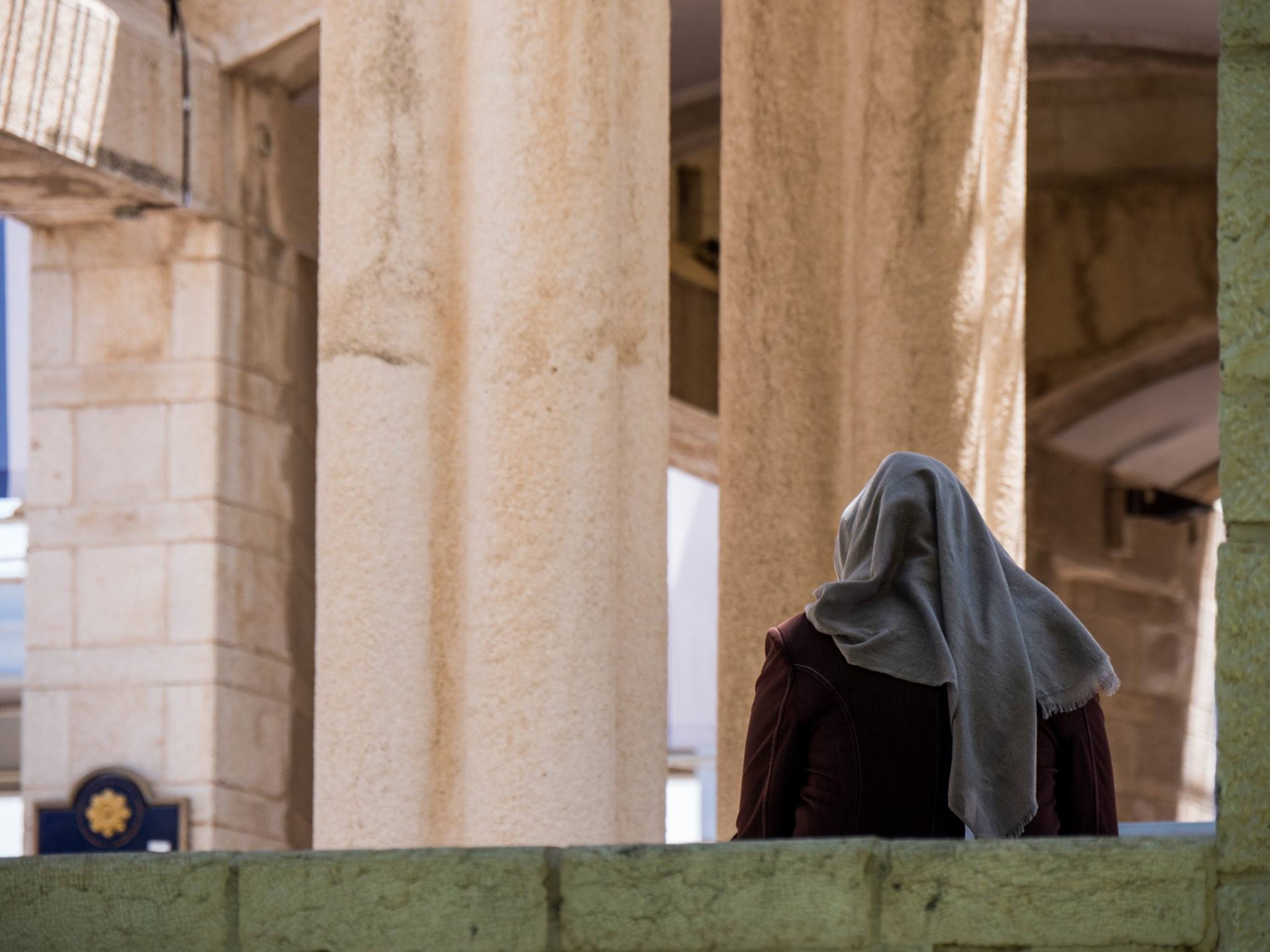
A monk in Jerusalem. Photo credit: © Dmitry Mishin
And if you prefer to be alone, exploring with one of our experienced guides, go ahead and book one of Jerusalem private tours - it can be customized exactly to your specific requirements. Jerusalem has sights that many people have never even heard about - such as Marc Chagall’s magnificent stained glass windows, at the Hadassah Hospital. With their exquisite color, each window depicting one of the twelve tribes of Israel, they are a must-see for any modern art lover.
Another hidden gem, often overlooked, is the Museum of Islamic Art, close to Katamon. Housing ancient pages of the Quran, pottery, glass, and luxury items such as jewelry and ornaments, it tells the story of Islamic art from the 7th to the 19th century and has justly earned its reputation for being one of the most important collections of its kind in the world.
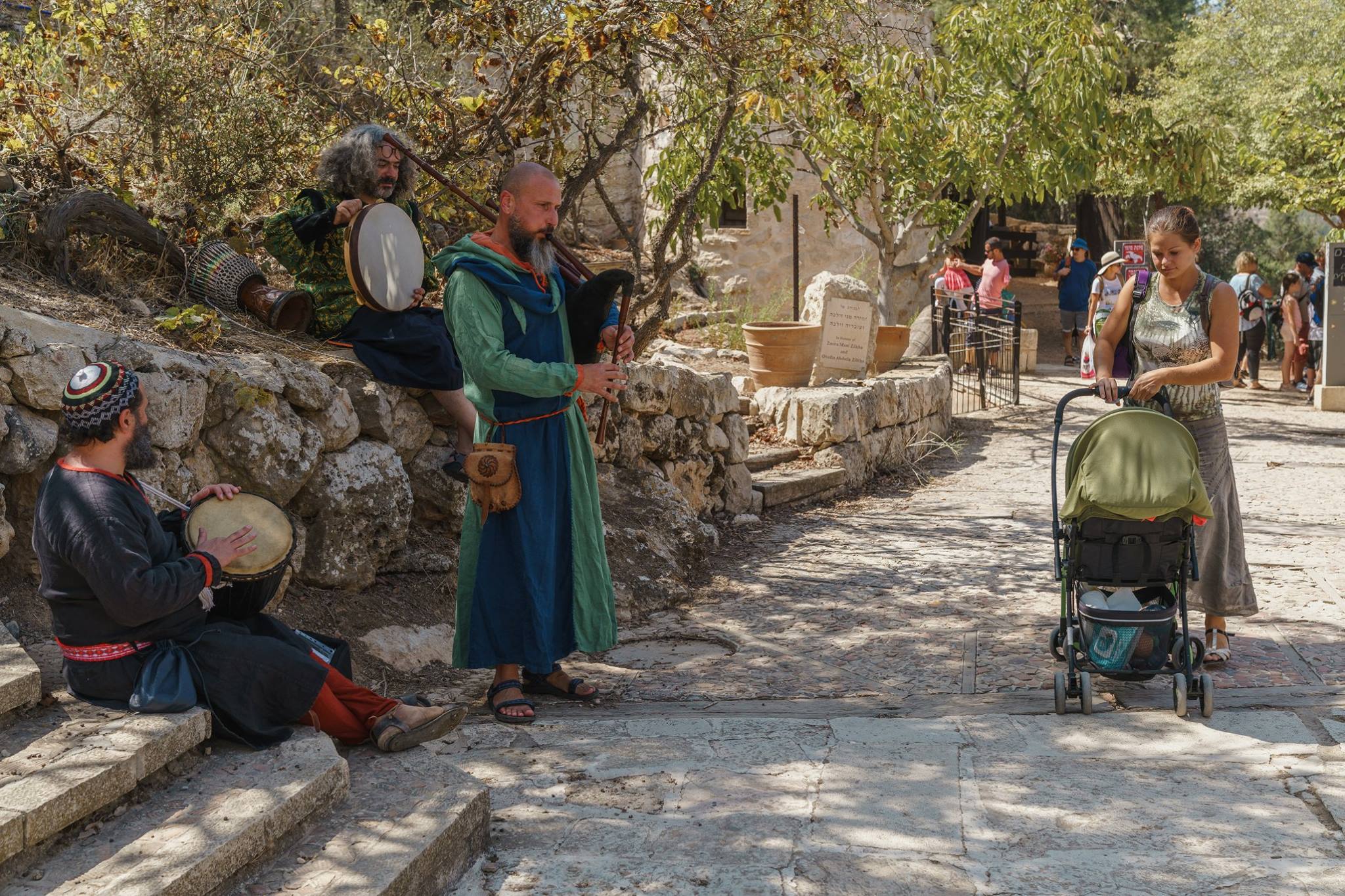
Jerusalem Knights Festival-2018. Photo credit: © Dmitry Mishin
6. What Should I Read to Prepare Myself?
Preparing for a trip to Jerusalem also involves transporting yourself back in time, via the printed word, and here are a few ‘classics’ to help you in this regard.
The Bible - whether you’re a believer, an agnostic, or a committed atheist, there’s no doubt about it that the Bible is possibly one of the greatest pieces of literature around. As a collection of literary genres, written over many centuries, it encompasses letters, poetry, and some quite visionary writing. Arguably the world’s most famous, and popular book, it’s easy to purchase too. When in Jerusalem don't forget to visit the Bible Lands Museum dedicated to the history of the people of the Bible.
“The Jewish War“ by Joseph Flavius - this wonderfully detailed and evocative account of the Jewish rebellion against Rome between 66 and 70 AD (culminating in a mass suicide at the Masada Fortress) is marked by all kinds of treacheries and atrocities. Flavius’ account provides much of what we know about the history of the Jews under Roman rule. Riveting.
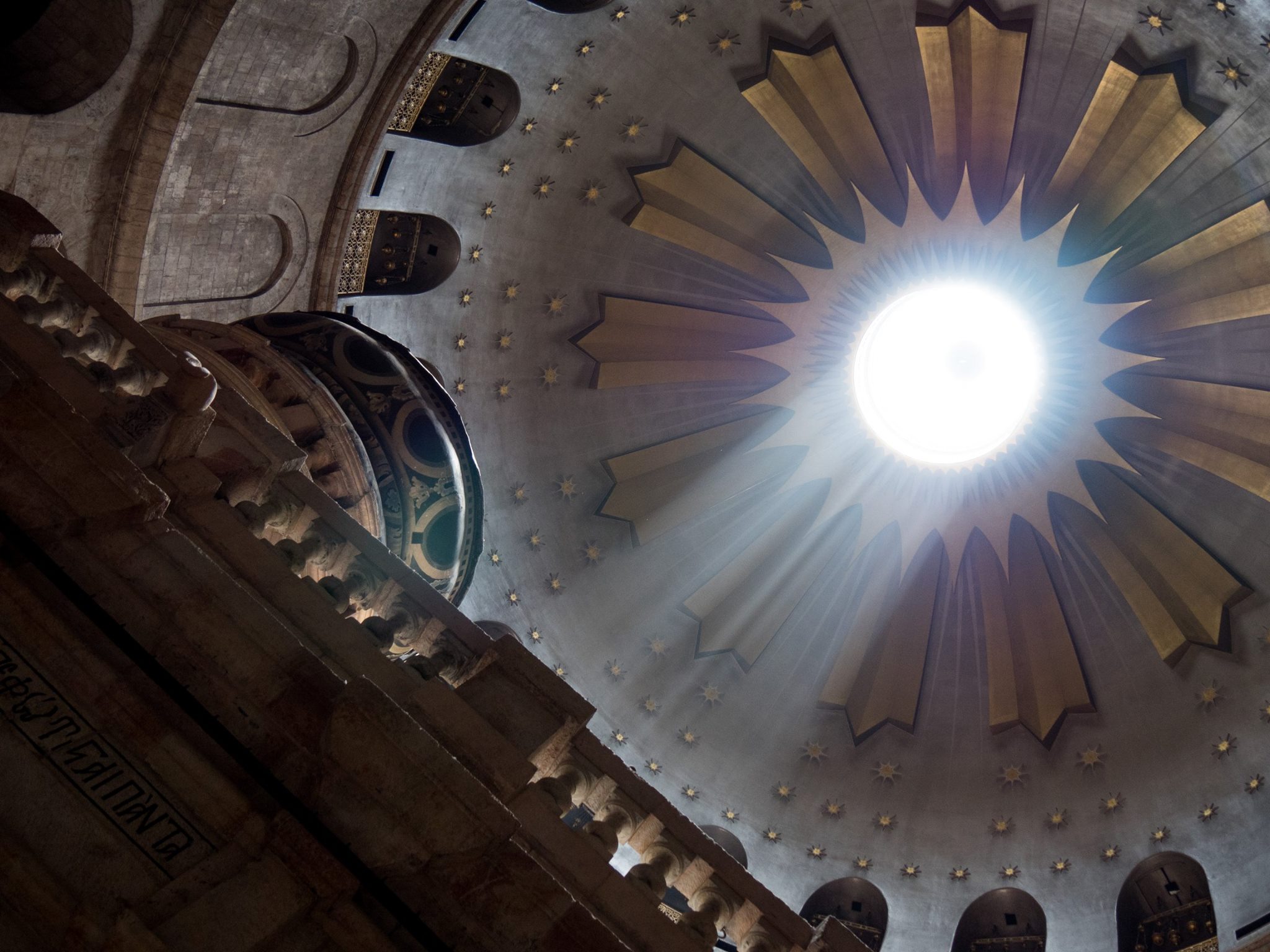
Oculus in the dome of the Church of the Holy Sepulchre. Photo credit: © Dmitry Mishin
“A Tale of Love and Darkness“ by Amos Oz - Oz is a giant in the field of Israeli literature and his beautiful autobiography is guaranteed to move even the hardest heart. Telling the tale of his childhood, growing up in Jerusalem, during the last years of the British Mandate and before the establishment of the modern Israeli state, Oz dazzles and his words move many to tears, and his story is so compelling, you may well not be able to put the book down. Translated into 28 languages, it has sold over a million copies to date. A true masterpiece.
“The Master and Margarita“ by Mikhail Bulgakov - a story of the supernatural and the mythical, this Russian author wrote with elements of romanticism, realism, and mysticism. His rich and buoyant narrative moves back and forth between Moscow and ancient Jerusalem, weaving into the pages scenes that range from a Satanic ball to the murder of Judas in Gethsemane. A Russian classic!
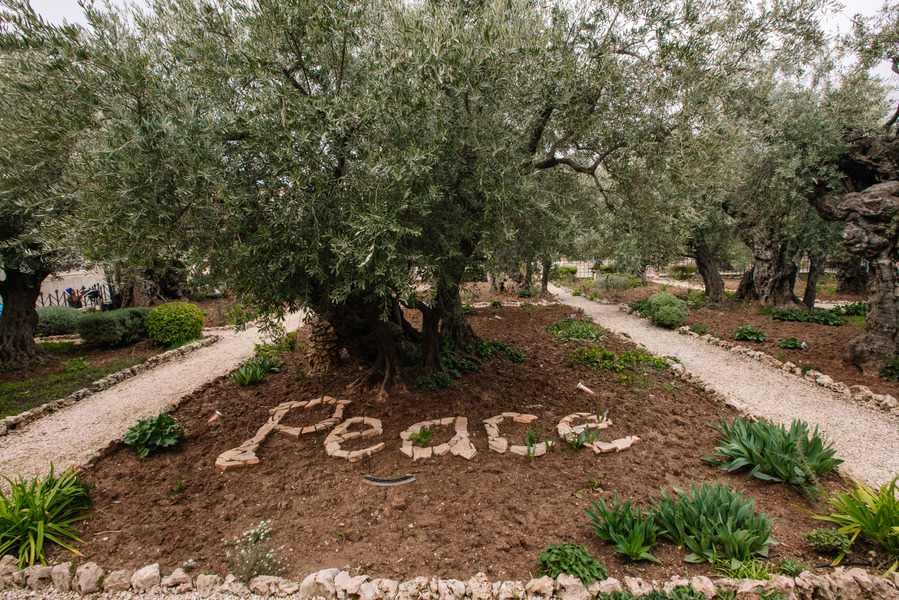
The Garden of Gethsemane, Jerusalem. Photo credit: © Dmitry Mishin
“The Book of Intimate Grammar” by David Grossman - Grossman is another one of Israel’s great novelists and he does not disappoint in this beautiful novel. The protagonist, Aron Kleinfeld, is the ringleader amongst the boys in his Jerusalem neighborhood, set in a time of ‘false’ innocence, just before the Six-Day War in 1967. The book mirrors the author’s perception of Israeli society at that time - reflective, insecure, and complex. Grossman’s insights into adolescent psychology are right on the money.
“The Innocent Abroad” by Mark Twain - by all accounts, Twain did not enjoy his trip to the Holy Land, complaining bitterly and endlessly about desolate landscapes and rocky terrain. The one exception he made was for Jerusalem, where he stated: “Perched on its eternal hills, white and domed and solid, massed together and hooped with high gray walls, the venerable city gleamed in the sun...the thoughts Jerusalem suggests are full of poetry, sublimity, and more than all, dignity.” Highly recommended!
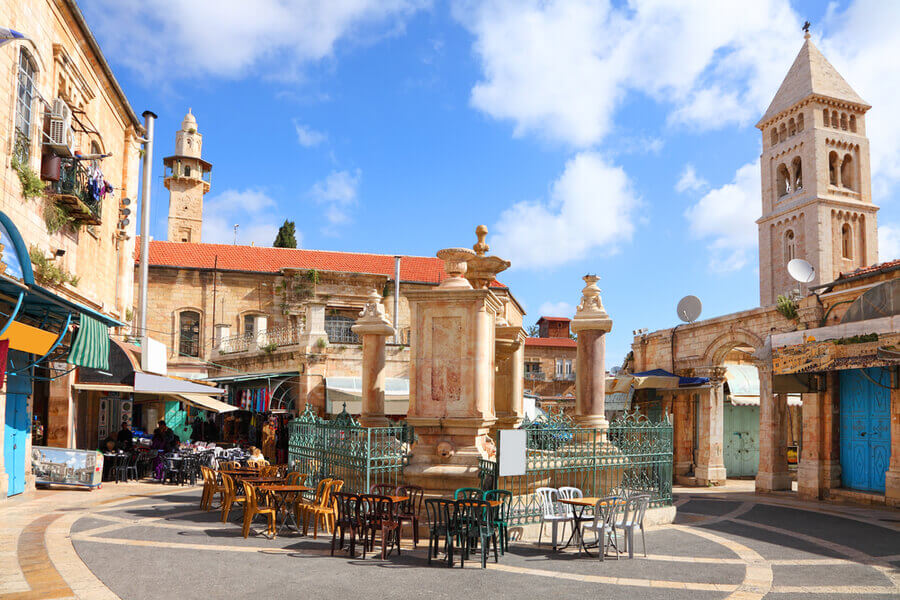
Jerusalem square. Photo credit: © Shutterstock
7. Is It Safe?
Many visitors arriving in Israel for the first time, feel a little nervous. We’re happy to alleviate your fears and tell you that traveling in Jerusalem is really very safe (although if you want to wander around Mea Shearim or the East of the city, you may feel more comfortable with a guide). The streets are extremely safe to walk, but if you want a bit more reassurance, then there are also plenty of day tours on offer.
Public transport is cheap and efficient, and almost everyone speaks English. Something else - Israelis love to help so the chances are that if you stop one and ask for directions, you might well end up being invited for coffee or if you’re lucky, Shabbat dinner! And once you’ve done that, you really will want to stay forever (or at least begin planning your next vacation in Jerusalem... Enjoy yourself in the beautiful, awe-inspiring, and quite unique city called Jerusalem!
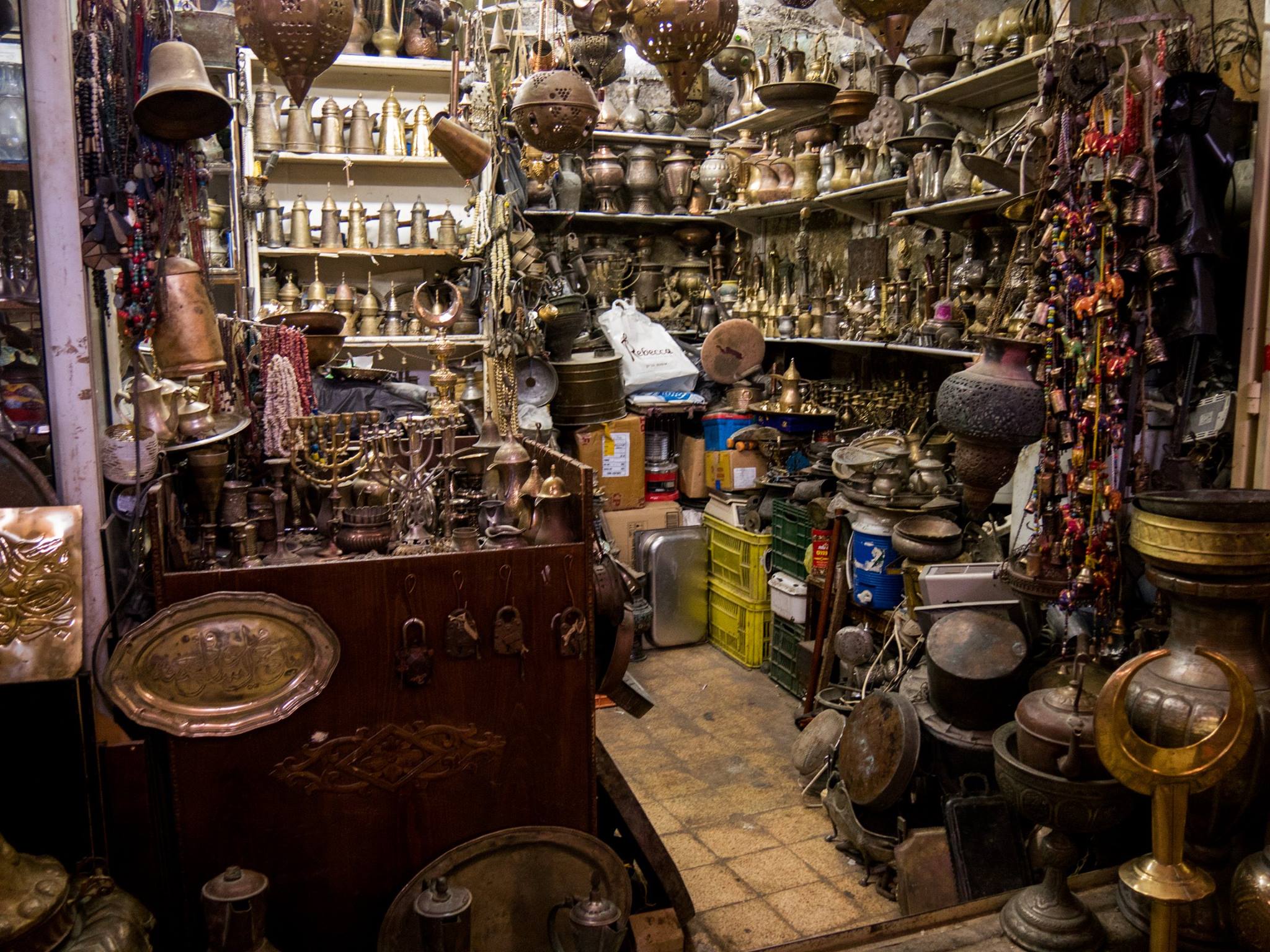
Antique shop in the covered alleyway of Jerusalem Old City Market. Photo credit: © Dmitry Mishin
 Login / Register
Login / Register
 Contact Us
Contact Us
 Certificate of Excellence
Certificate of Excellence Guaranteed Departure
Guaranteed Departure Low Prices Guaranteed
Low Prices Guaranteed 24/7 Support
24/7 Support




